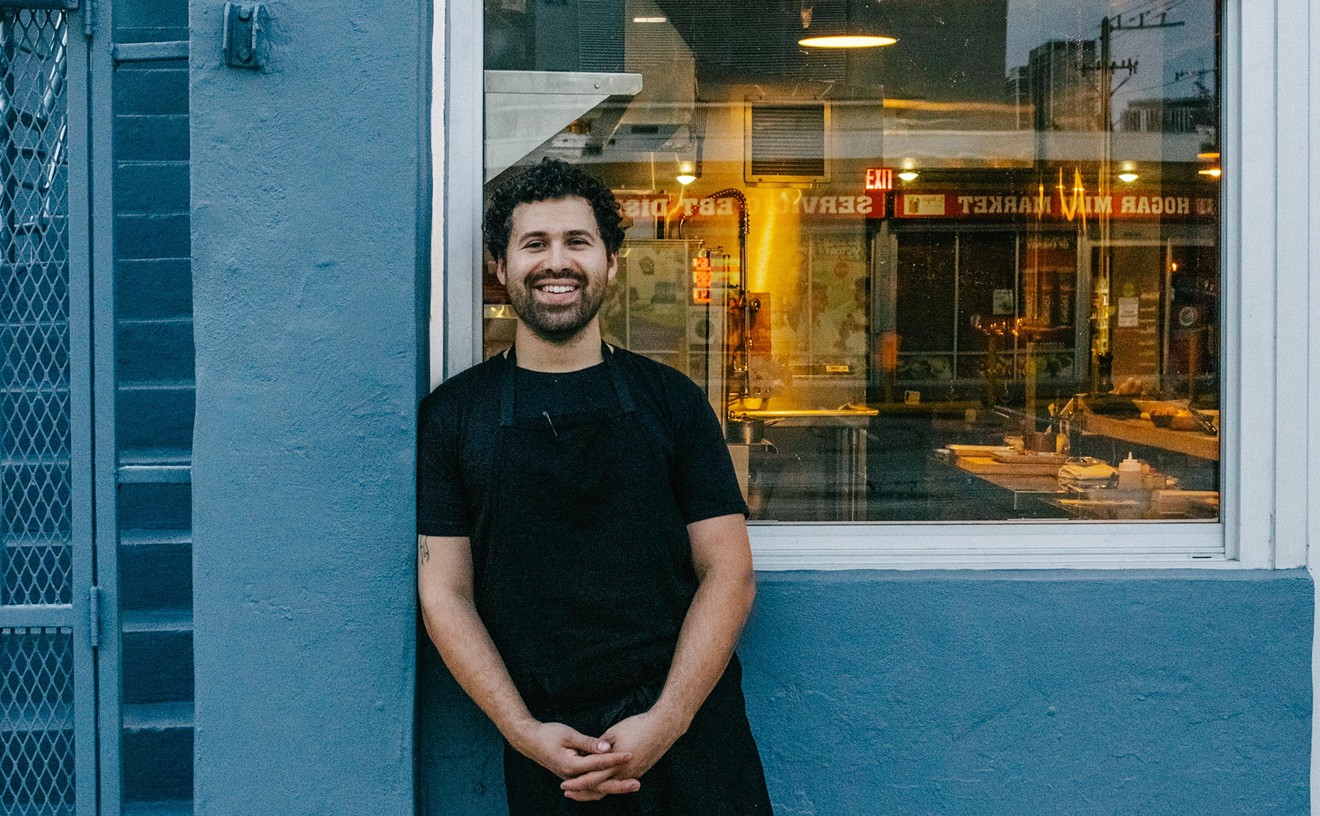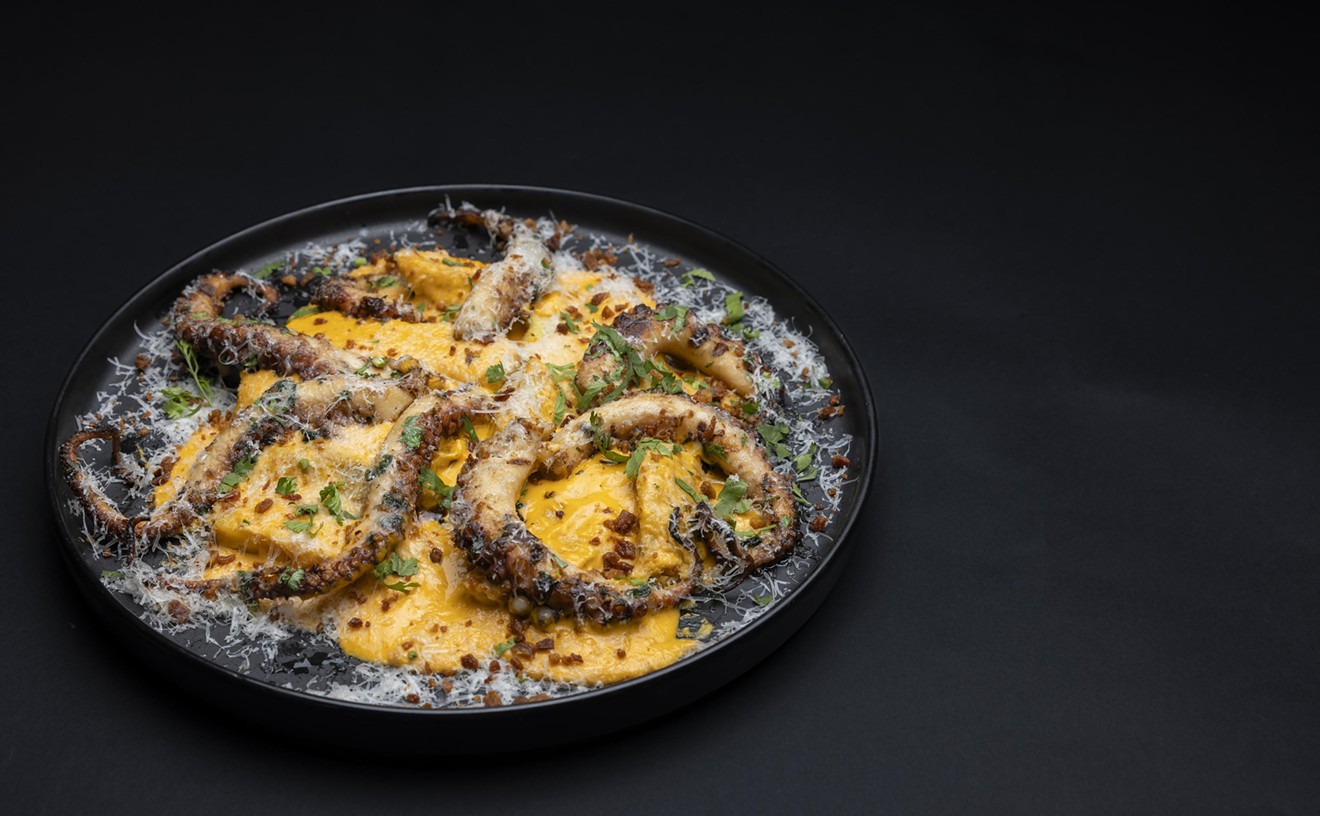There are always new Japanese restaurants opening in Miami, but no matter how many join the ranks, there are few viable options.
Just take a look at Eater Miami's recent list of so-called "essential" sushi restaurants. For the most part, the group is a laughable assemblage of transplants and middling California roll and green curry factories. It takes a special kind of courage to draw up a list with so few worthwhile options.
Missing from it, however, is the small Coral Way Japanese spot called Sushi Chef that friends and acquaintances have for years encouraged me to visit. It was the neighboring takeout Chinese joint, whose grime I feared couldn't be contained within its four walls, that kept me away. Yet for 24 years chef Fusao Enomoto has plied simple Japanese fare at this humble spot. He trained in Tokyo and began cooking in earnest in 1960. His career in Japan was short-lived. He followed his homeland's diplomats around the world, cooking from Caracas to Bucharest and Paris, before retiring and returning to Venezuela to open one of the country's first Japanese restaurants.
His menu has changed little since he moved to Miami, and Enomoto sits at a corner table overseeing the restaurant. If you belly up to the sushi bar and ask for omakase a cook will happily oblige. It's an exciting option, but like so many of Miami's sushi restaurants reminds of the need for something better.
The meal starts with a small dish of thinly sliced squid mixed into a creamy sauce of blended sea urchin. The near noodles of cephalopod strike the perfect balance of suppleness and chew. Unfortunately, the uni wasn't the slightly sweet, oceanic variety, and instead leaned toward the fishier side.
The main plate that followed during the $40 lunch was also marred and lows. The amaebi — sweet shrimp nigiri accompanied by their flash fried heads — were among the best I've eaten. The juicy tails also rested atop slightly vinegared and warmed rice sushi rice that hadn't been boiled to oblivion. The kitchen somehow managed not to lose any the heads' briny liquor and lifted them out of the fryer at just the right moment. Very often they're left to cook for too long, leaving the little outcroppings charred and chalky.
The mackerel rolled up inside a simple maki was of a thinner cut that offered more of the fish's skin and underlying fat than velvety meat that makes the silver skins such a treat. Thick slices of hamachi and salmon sashimi were luscious and clean tasting, but the lean tuna sushi had an almost musty flavor. It was easy to spot the rainbow-colored oxidation on its surface.
A visit here emphasized the disappointing reality that eating good sushi in Miami is hard to roll into your weekly routine. The city's best and most approachable option, omakase at Michio Kushi's Sushi Deli, remains limited due to short hours. Naoe and Makoto are always good choices though cost prohibitive for most. Standbys Matsuri and Su-Shin Izakaya are a respite for the Coral Gables crowd. It's why Myumi, the omakase food truck in Wynwood, continues to fill. The city can handle places that are more than pan-Asian catch-alls, and it needs them desperately.
For more follow Zach on Twitter or Instagram.
[
{
"name": "Air - MediumRectangle - Inline Content - Mobile Display Size",
"component": "19274298",
"insertPoint": "2",
"requiredCountToDisplay": "2"
},{
"name": "Editor Picks",
"component": "17482312",
"insertPoint": "4",
"requiredCountToDisplay": "1"
},{
"name": "Inline Links",
"component": "18711090",
"insertPoint": "8th",
"startingPoint": 8,
"requiredCountToDisplay": "7",
"maxInsertions": 25
},{
"name": "Air - MediumRectangle - Combo - Inline Content",
"component": "17482310",
"insertPoint": "8th",
"startingPoint": 8,
"requiredCountToDisplay": "7",
"maxInsertions": 25
},{
"name": "Inline Links",
"component": "18711090",
"insertPoint": "8th",
"startingPoint": 12,
"requiredCountToDisplay": "11",
"maxInsertions": 25
},{
"name": "Air - Leaderboard Tower - Combo - Inline Content",
"component": "17482313",
"insertPoint": "8th",
"startingPoint": 12,
"requiredCountToDisplay": "11",
"maxInsertions": 25
}
]










